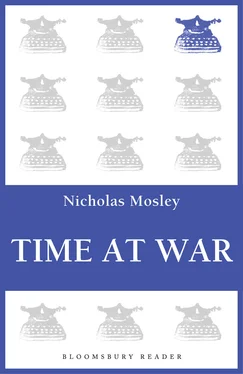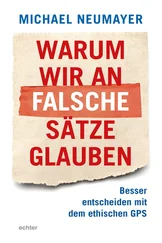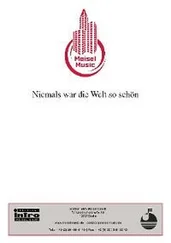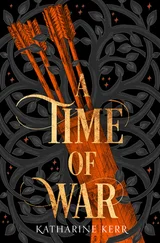Later, however, I learned that my anti-C of E diatribe had been sent by my other aunt, my mother’s younger sister Baba, to her own favourite priest who happened to be a Father Talbot, Superior of the Anglican Community of the Resurrection — which, as things turned out, was to play such a large and vital part in my life years later. I wrote to my father –
Baba’s priest was a very good find — far less bogus than Nina’s, and very tolerant of my rather wild and woolly criticism. I seem to spend most of my spare time writing long and intricate religious letters; which does not help very much. Like GBS I ask the most searching questions, attempt far too vaguely to answer them, and finish in much the same muddle as I began. But it does keep one’s mind feebly ticking over, when one might, in the circumstances, so easily be mentally dead.
In August I wrote to my aunt to say that at the end of the month I would be coming on embarkation leave before being sent abroad to heaven knows where. My aunt and my sister Vivien and my brother Michael and our old Nanny, who was now housekeeper and cook, would be staying in a small holiday house on the north Cornwall coast, and I said I would join them there. I wrote — ‘Eventually one will have to look at the world objectively and to decide what is to be one’s relation to it; whether to fight the horror or run from it; to search for perfection in the solitude of one’s own beliefs, or in the greater struggle for external fulfilment. At the moment however everything is unkindly settled for me, and thus all I can do is sulk or giggle’
In Cornwall we swam and surfed and picnicked and climbed about on the rocks; we played cards in the evening; we had a good time. I was among people with whom I had spent the best part of my life and whom I loved. But it seemed that we did not quite know what to say to each other about my going off to war: what can one say? My aunt wrote in her diary that I was defensive about my father and was ‘shatteringly crude and offensive about Christ’. Perhaps it was not possible for me after all just to sulk or giggle.
One of the last things I did before embarking on the troopship at Liverpool was to go with my grandmother to the Home Office and put in a request to a high-up official that my father should be released from prison; he could surely, we argued, no longer be considered a security risk. And he had phlebitis, which was getting worse, and his doctor had said that without a reasonable chance of exercise he might die. Watching the Home Office official, I felt I could see the levers of his mind clicking this way and that; but whether to the unlocking of prison doors or not I could not tell. My grandmother said, ‘This is his son who is going off to war.’ I wondered— Could it make any difference, my going off to war?
The war in North Africa had been over for some months. The British and Americans had landed at Casablanca, Oran and Algiers in November 1942, and had headed east to link up with the advance of the British across the desert in the west after the victory at El Alamein in October. Hitler had declared war on America in December 1941 at the time of the Japanese attack on Pearl Harbor; for a year the Americans had concentrated on fighting the Japanese in the Pacific. They had then, however, wanted to get a foothold in the war across the Atlantic. By this time the enemy in North Africa consisted almost entirely of Germans: the Italians had faded away after defeats by the British in the two previous years and the German Afrika Korps under Rommel had taken over.
In May 1943 the Allied armies advancing from east and west met in Tunisia and the Germans surrendered en masse. In July Sicily was invaded, where the opposition was again mainly German. By the end of August Sicily had been cleared and the question was being debated among Allied leaders about whether, and how, Italy should be invaded. This was when my group of Rifle Brigade and KRRC officer reinforcements were setting out from Liverpool.
We seemed to sail far out into the Atlantic; where on earth could we be going? No one of course had told us: this was the style of wartime information. There were the inevitable rumours — we were going round the Cape of Good Hope; we were to join up with another convoy coming from America. This guess appeared to be correct, because one day there were suddenly other ships around us. Then someone said we must be in the Bay of Biscay because it was so rough; and one by one figures disappeared from the breakfast table, leaving myself and one or two other sturdy gluttons to consume their leftovers: bacon and eggs, bowls of fresh fruit that had not been seen in Britain for two or three years. Our ship, the Vollendam, was Dutch and had recently been to New York, where it had stocked up with provisions. I wrote to my sister ‘I suffer more from being vomited against than vomiting.’
We were discouraged from working off our self-indulgence on deck after dark because it was feared we might overconfidently light cigarettes which, we were assured, could be spotted by a U-boat miles away. Down in the stiflingly hot lower decks the mass of other ranks swayed and sweated in hammocks, and were sick. On a slightly higher level, in four-berth cabins, members of the old Juke Box clientele lay in comatose but still decorous states of undress. Then after a few days the weather cleared, and we thought we recognised the Rock of Gibraltar on our left.
I wondered — Would we be like Aeneas who, on his way to Rome from Troy, had stopped off at Carthage, near Tunis, and had had a fine time making love to Dido? But then he had abandoned her to carry on with war, and she had committed suicide.
It turned out that the Vollendam was heading for Philippeville, indeed somewhere halfway between Algiers and the old Carthage. I had arranged a code with my sister whereby I might be able to tell her in letters, without too obviously breaking the censorship regulations, where we landed up. My sister’s and my mythology was less Greek or Roman than 1930s films; so from Algeria I wrote to her, ‘We might be able to visit Jean Gabin or Charles Boyer.
But how little had the style of mythology changed from the time of the ancient Greeks! They had loved stories of suffering and war: we now in films loved stories of sacrifice and grief. Why were there no myths of people getting on sensibly with peace?
Near Philippeville we stayed for two months in a camp, four officers to a tent, among sand dunes. We bathed in a dangerous sea; we drank red wine and played poker and bridge. For a while we enjoyed the holiday atmosphere. I wrote to my sister — ‘Yesterday we played football in a temperature equivalent to the melting-point of flesh: ten effete and flabby young officers beat eleven horny old Scotsmen who have sulked most ungraciously ever since.’
But then it seems we got homesick because I and some others volunteered for the parachute regiment. We understood that to succeed in this would get us back to England for a while; but when tested I was judged to be too tall and too myopic. We were sent on manoeuvres with armoured cars in the desert; during one scrimmage with the ‘enemy’ I reported to my father — ‘I captured an enormous Captain in a hush-hush job whose face seemed vaguely familiar. Unfortunately I treated him with respect, for it turned out to be Randolph Churchill. If I had known earlier I would have thrown him into a dungeon.’ When I was a child Randolph Churchill had been a good friend of my father’s; now he was so no longer.
I began to have renewed fantasies about how, if or when I did eventually get into the fighting, it might indeed be sensible to be taken prisoner. What was this human lust for war? I had paid my respects to it, but I did not need to remain part of it for ever. And in prison camp I might be able to spend the rest of the war profitably studying and practising writing. This was to a large extent a joke — yet not totally. The war really did seem to be as good as won; and what was the point of being killed in what seemed to be everyone’s insistence on unconditional surrender or destruction? And surely my father was right when he said that the only real winners would be the Russians and Americans? I wrote to my sister — ‘The whole thing is so obviously absurd, so tremendously ridiculous.’
Читать дальше












